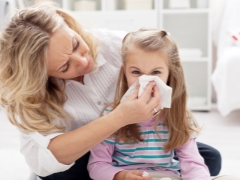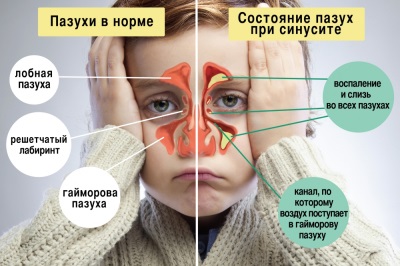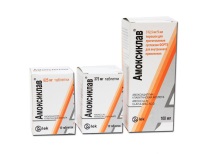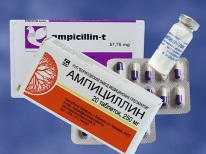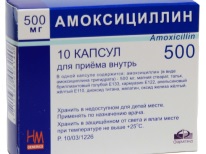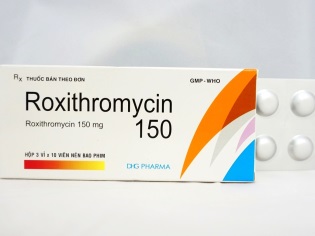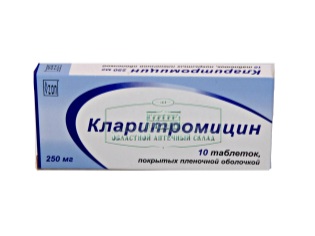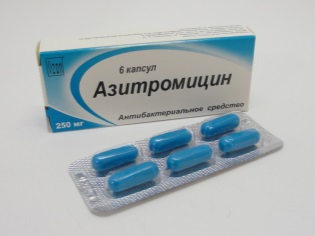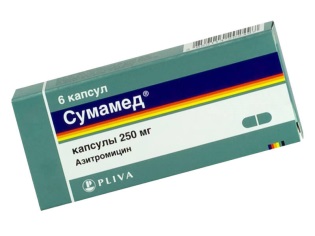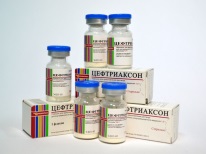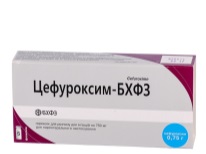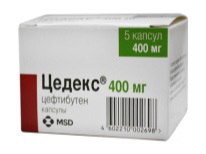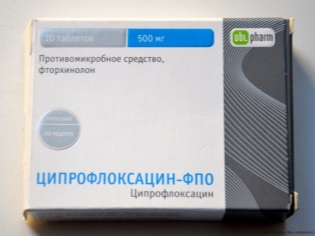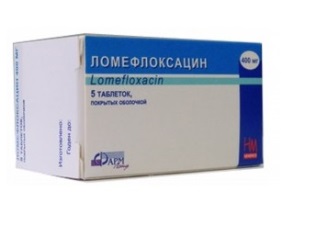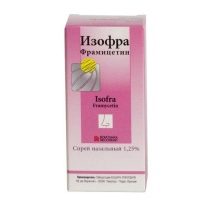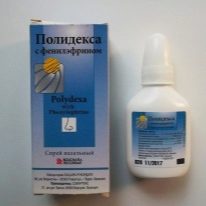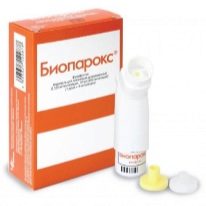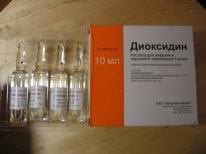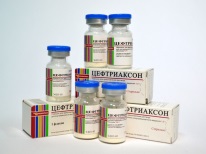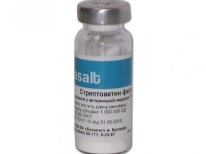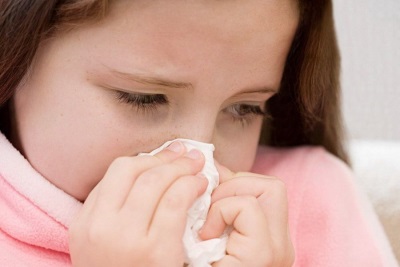Antibiotics for antritis in children
Children's sinusitis (inflammation of the maxillary sinus "maxillary" sinuses) has a distinctive feature from an adult.
In childhood, all the mucous membranes are very loose, and the nasal passages are quite narrow. Due to these physiological features, the withdrawal of mucus from the child's nasal passages is difficult, and therefore the pathogenic bacteria multiply and grow faster in the ideal environment for them.
Therefore, sinusitis, if such a diagnosis is made by a doctor and confirmed laboratory, you need to begin treatment as soon as possible. Moreover, when asked if antibiotics are necessary for antritis, the answer is almost always positive.
Why are antibiotics for antritis?
The first 5-7 days, doctors will try to treat the child without the use of antibiotics, provided that you applied to the clinic in time, and the stage of the disease is not running. If there is no improvement, it is mandatory to prescribe antibiotic therapy.
Sinusitis is unpleasant and painful for the child itself, but the disease itself is not as scary as its possible complications. And in this list are very dangerous and difficult diagnoses:
It is necessary to treat sinusitis at the earliest stage.
Causes and pathogens
As a rule, antritis is already a complication that occurred in a child after suffering flu, prolonged rhinitis, colds. Inflammation of the maxillary sinuses (with sinus), frontal sinus (with frontal sinusitis), or two or more sinuses (with sinusitis) usually cause Staphylococcus aureus, Pseudomonas aeruginosa, streptococci of group A, hemophilus bacillus, and aerobic bacterium moraxella.
Viral or allergic sinusitis can not be treated with antibiotics, since the antibiotic can not destroy the shell of the virus, it is designed to destroy bacteria.
But this is usually not required, because in 90% of cases of viral sinusitis, the disease resolves itself with moderate treatment with antiviral drugs.
Indications
Symptoms of sinusitis is difficult to confuse with other diseases of upper respiratory tract. It is characterized by crushing pain in the forehead, "swelling" of the wings of the nose against the background of constant congestion, discharge of purulent fragments in the mucus from the nose, tearing and fear of bright light. May rise temperature body to 37.5-38.0 degrees.
A doctor's suspicion of sinusitis (sinusitis, sinusitis) should be confirmed or refuted by X-ray of the sinuses and bacterial inoculation of mucus and from the nose.
About what symptoms are, how to treat sinusitis, you can see in this video of the school Komarovsky.
Types of antibiotics for antritis
At the very initial stage of the disease, it is acceptable to prescribe penicillin antibiotics. They affect the body "softer" than others and cause fewer side effects:
- «Amoxiclav»;
- «Ampicillin»;
- «Amoxicillin».
If the penicillins failed, and the child was not cured, or the young patient had recently been treated with antibiotics in this group, The doctor will prescribe macrolide antibiotics:
- Roxithromycin;
- «Clarithromycin»;
- «Azithromycin»;
- «Sumamed».
If the macrolides have not had the desired effect, or the child already has a rather advanced stage of sinusitis, the doctor will prescribe a medicine from the cephalosporin family of antibiotics. The child will have to take more "serious", but more effective drugs:
- «Ceftriaxone»;
- "Cefuroxime";
- «Cedex».
And very rarely in the treatment of child's sinusitis, doctors try to use antibiotics of the fluoroquinolone family. These are not children's antibiotics, but sometimes they are still prescribed to children after 5 years for the treatment of severe antritis caused by the blue pus bacillus:
- «Ciprofloxacin"(" Digran ");
- "Lomefloxacin".
All of the above is appropriate for situations where the child has acute forms of sinusitis. In chronic diseases, the use of antibiotics causes considerable doubts among scientists and doctors - it may happen that all antibacterial drugs will be tried, and the next exacerbation of sinusitis will have nothing to treat.
Drops and sprays for treatment
Local antibiotic treatment in the treatment of sinusitis in children is considered the most optimal solution.
After all, using the medicine through the nose in the form of drops or spray, we significantly reduce the risk of such unpleasant consequences of taking antibiotics such as dysbacteriosis, thrush, allergic reactions. This for a growing body is definitely better. In addition, the antibiotic, delivered "to destination", to the site of inflammation, has a healing effect faster.
If the respiratory channel is open, then problems with the use of drops and sprays will not arise. If closed, the doctor may suggest a “puncture”, and then prescribe local antibiotics.
The most popular topical antibiotics are:
- «Isofra". Potent drug with the antibiotic Framycetin is usually recommended for children from one and a half years. However, in some cases, "Izofru" may also be prescribed to younger children. An antibiotic is sold in the form of a spray in 15 ml vials. Also, the drug is available in nasal drops. Doctors emphasize that "Isofroy" can be treated for sinusitis, sinusitis, provided that the nasal septum is not damaged.
- «Polydex". This spray has both anti-inflammatory and bacterial effects. Antibiotics in the composition - "Neomycin" and "Polymyxin." It comes in the form of ear drops and nasal spray. Children are recommended from 2.5 years.
- "Bioparox" - an aerosol that improves the condition of the nasal mucosa. The antibiotic in the composition - "Fusafungin", the drug is prescribed to children aged 2.5 years. On sale "Bioparox" is in bottles of 20 ml. The drug has a significant list of contraindications.
Most antibiotic drip forms and antibacterial sprays are contraindicated in children under 2–3 years of age. But in infancy, sinusitis is a rarity, since the final formation of the sinuses in children is completed only by 4 years. The most susceptible to sinusitis is children aged 7-10 years.
Complicated drops
“Complicated drops” in the nose were the only effective way to defeat sinusitis when my eldest son was undergoing treatment in his 12 years. After the tried and tested “fashionable” and rather expensive sprays, even after a course of antibiotics intramuscularly, he didn’t have a significant improvement. And “difficult drops” helped us recover.
“Complicated drops” is a drug that consists of several other drugs in the form of drops. Names, proportions and exact composition are prescribed by the doctor, and the drops themselves are manufactured by pharmacists in a pharmacy with its own prescription department.
Usually, the doctor resorts to the "difficult drops" when sinusitis is prolonged, recovery does not occur even after a course of therapy, or in case of a severe form of the disease.
Antibiotics are often used in “compound drops”. To keep such drops usually can not be long - about five - seven days.
About the treatment of sinusitis in children, about antibiotics, vasoconstrictor and complex nose drops can be found in this video:
Before applying the drops or spray, it is necessary to rinse the sinuses. Saline solution (1 cup of boiled cooled water per 1 teaspoon of salt), soda solution or sea water, furatsilina solution or a weak solution of potassium permanganate are suitable for this. At home, rinsing can be easily done with a rubber pharmacy pear. It is also possible to wash the sinuses with a syringe from which to pre-remove the needle. Pharmacies today are selling special devices for washing the nose.
After washing, it is advisable to take some time off and drip the vasoconstrictor preparations, if there is a feeling of congestion (ie, swelling in the nose). In a few minutes it will be possible to breathe and then you can already bury the drops and spray with antibiotics.
Antibiotics for inhalation in the treatment of sinusitis:
- «Dioxidine". In nebulizers "Dioxidine"Used in the form of a special solution for inhalation. Such procedures can be performed for children who have reached the age of two. For children from 2 to 6 years old, inhalation should last 1 minute. Children from 6 to 12 years old - no more than two minutes.
- «Ceftriaxone". In nebulizers use a dry mixture intended for injection. Bottle of 1 ml of drug + 5 ml of saline. The duration of inhalation for a child with antritis is no more than 4 to 5 minutes.
- "Streptomycin". Inhalations with this antibiotic for antritis are not recommended for children under 1 year of age. The duration of the procedure is no more than 3-4 minutes.
The time of inhalation sessions and the duration of the course is determined by the doctor.
Features of treatment
- This can be done both in the hospital and at home. Severe forms of the disease are likely to require hospitalization and subsequent surgery.
- You can not change the dosage of the drug, interrupt the course of treatment even after a visible improvement in the child's condition. Unfinished sinusitis is likely to become chronic.
- It is strictly forbidden to warm the nasal cavities during sinus. Warm compresses and a hot-water bottle on the nose are sure to please the bacteria that have settled in the child’s sinuses. They will thank you. Any warming up for sinus will benefit only if there is no pus in the sinuses, and the treatment has reached the "finish line".
- While taking antibiotics in the treatment of sinusitis, do not forget to give your child to drink the bacteriophages "Bifidumbacterin", "BififormAnd others for the prevention of dysbacteriosis.
